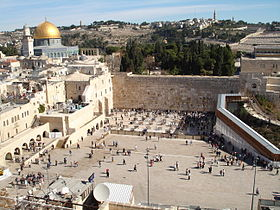
Arquivo para October 20th, 2023
Your fathers rejected the prophets
After the period of the Judges, which was a truly theocratic period, ended, the people of Israel began to ask for Kings (Samuel 8,6-8), the kings ruled from 928 BC until the destruction of the first temple in Jerusalem (586 BC), but the people had already gone into captivity in Babylon in 722 BC, more than 100 years later the kingdom of Judah was destroyed.
truly theocratic period, ended, the people of Israel began to ask for Kings (Samuel 8,6-8), the kings ruled from 928 BC until the destruction of the first temple in Jerusalem (586 BC), but the people had already gone into captivity in Babylon in 722 BC, more than 100 years later the kingdom of Judah was destroyed.
Already in the last period of the judges, Samuel, who was also a prophet, saw the people going astray, and even his children no longer followed divine laws, the very division between Israel and Judah (it must be said that this is where the name of Jews), and was the second king of Israel, David, who unites the two kingdoms and names the capital Jerusalem, where his son Solomon will build the first temple.
It was the prophet Ezekiel who lived in Babylonian exile, between 593 BC and 571 BC, who prophesied the destruction of the temple and spoke of the infidelities of the Hebrew people, the prophet Isaiah had also preached that sin had reached Israel and Judah in such a way that the curse would hit the Hebrew people, the biggest of which, of course, was the exile from Babylon.
When Cyrus becomes king of Persia and takes Babylon in 538 BC, he allows the Hebrew people to return to their land and the possibility of rebuilding their temple, the second, but the people’s deviations continue to occur until the last and greatest of the prophets John the Baptist , the one whose head Herod asked for in exchange for Salome’s dance, which he asks for at his mother’s suggestion.
Jesus was rejected for challenging the Pharisees and teachers of the law of his time, there were also those who wanted a leading position in the war against the Roman empire, after the death and resurrection of Jesus in the year 70 AD, the second temple was destroyed by the general Roman Titus and only the wailing wall remained (photo).
Jerusalem was burned and the Jewish people were dispersed, the Jews who settled in Eastern Europe were called Ashkenazi and those from the Iberian Peninsula Sephardim.
Jesus’ position on the Roman empire was clear, since the Romans also feared him, Herod especially, and Pilate washed his hands at his crucifixion, when the Pharisees set a trap asking if it was fair to pay taxes, Jesus takes a coin and upon seeing the figure of Caesar he says: “Give to Caesar what is Caesar’s and to God what is God’s” (Mt 22,34-40) this trap remains in religious circles to this day.

